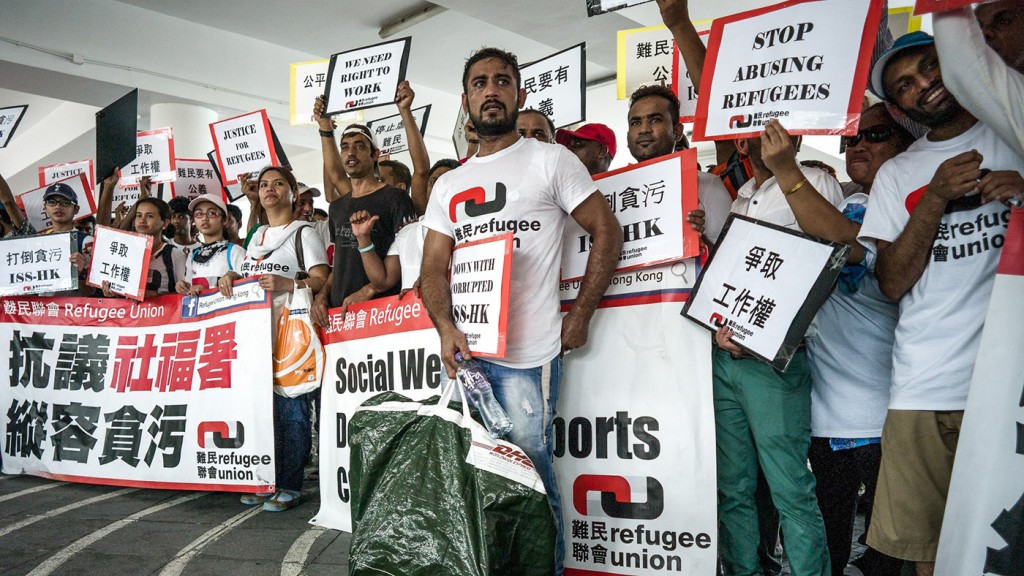
A refugee blogger distressingly underscored the reality that crushes hope in his community. He wrote, “Hong Kong immigration delays hundreds of old cases because the answer would be positive”. Vision First has been informed by several refugees that Immigration officers had acknowledged, off-the-record, that their claims were strong, but no decision was ever made to accept or reject. Why?
Last week a refugee who sought asylum in August 2005 reported that he was summoned for yet another seemingly pointless interview. He lamented, “Three of us escaped to Hong Kong together. One went back, one left for Europe and I still do interviews. I forget how many times.… Are they waiting for me to forget or make a mistake on my case?”
His friend, who arrived in Hong Kong in 2003, had this to say, “They keep telling me I have a good case. They said it twelve years ago when I was 25 and now I am getting old. My lawyer said that they don’t know what to do with my case. It’s unbelievable.”
A few considerations should be made:
First, the legal framework governing asylum isn’t to blame. It could certainly be improved, but it is acceptable. The problem is implementation and, in particularly, ultra-long assessment times that raise the aphorism “justice delayed is justice denied”. Frequently no further evidence is provided, as in the case of a recognized torture claimant accepted after 10 years without adding anything to his first statement. The above blogger commented, “They know that certain people will find a way that is convenient for the government” and four recent cases may illustrate his point.
Case One: arrived in HK in 2007 and opted for ‘voluntary departure’ in 2014; sought asylum in Holland and was recognized as a refugee three months later; received 1500 Euro to meet living expenses until he found a job.
Case Two: arrived in HK in 2013 and opted for ‘voluntary departure’ in 2014; sought asylum in France and was recognized as a refugee in six weeks; was given a 5 years permit to stay with working rights and a monthly stipend until he found a job.
Case Three: a screened-in torture claimant of 2013, closed his protection case to ‘voluntarily depart’ in December 2014 for a European country where he lodged an asylum claim. His Hong Kong lawyer supported the decision because recognized refugees do not enjoy work rights and exceptions are hard to obtain and limited in scope.
Case Four: arrived in HK in 2013 and is utterly disillusioned about protection and future prospects. For the sake of wife and children, whom he is unable to assist back home, he plans to close his case and return to a neighbouring country. He will sell property and seek asylum in Europe.
Second, Europe is often mentioned as an idyllic place to seek asylum. However it is increasingly harder for people intending to seek asylum to reach the Old Continent amid securitization of border controls that make the journey ever riskier. In Hong Kong a similar process occurs. But rather than the journey being made difficult, it is the asylum procedure that is made relentlessly harsh, so punitive that claimants decide to give up.
Third, when refugees don’t give up despite Immigration bosses wanting nothing more than for them “to take their troubles elsewhere”, they are forced to repeatedly live a past that they would rather forget. A past of trauma and persecution that is revived every time they are called in for interviews.
Such an asylum mechanism affects justice in our city as we are reminded that the failure to treat anyone fairly, is ultimately a failure to treat everyone fairly.


